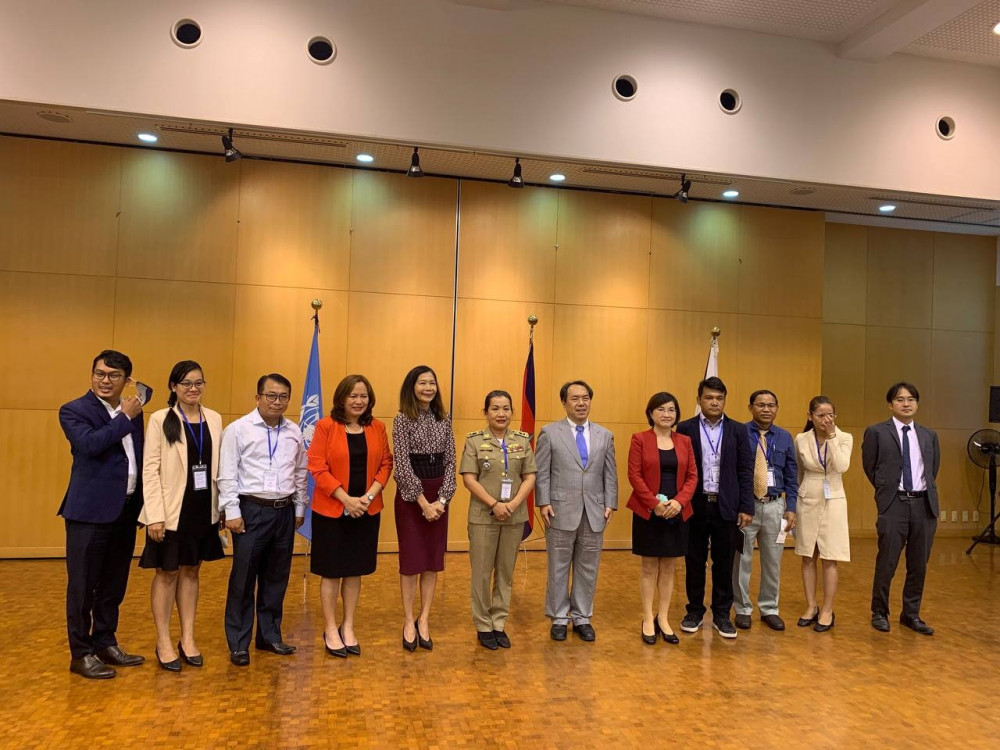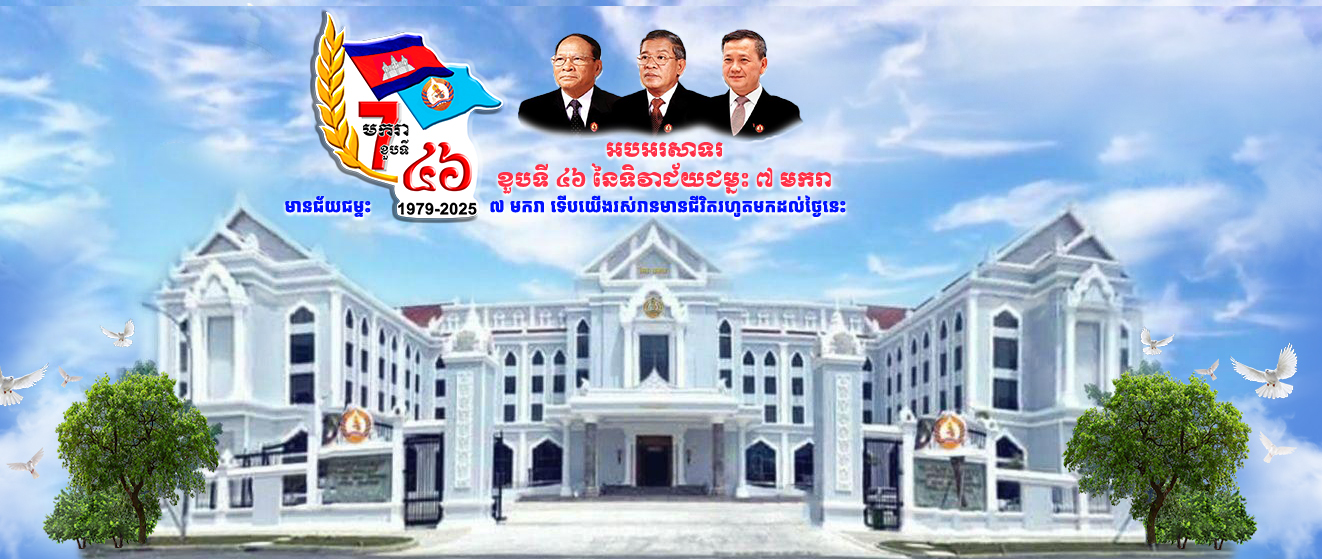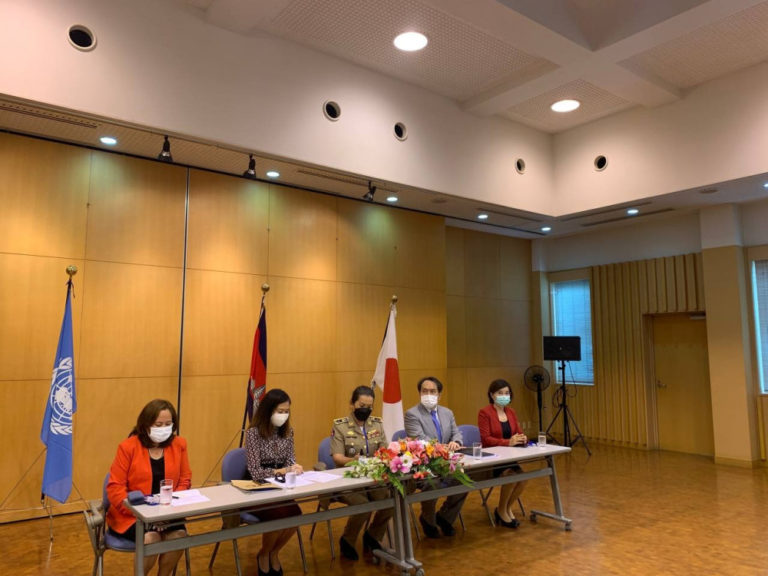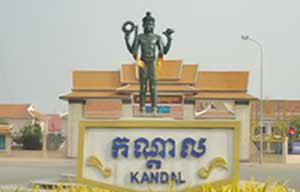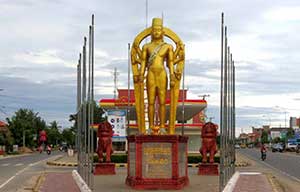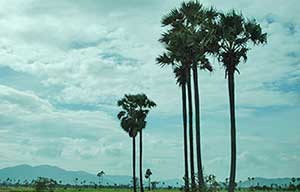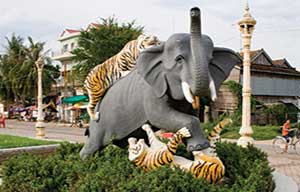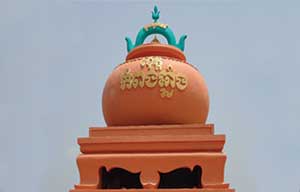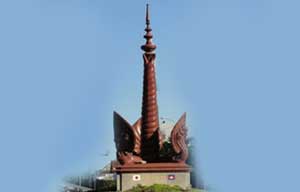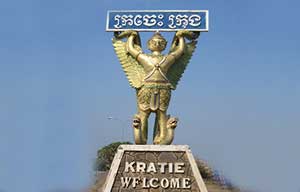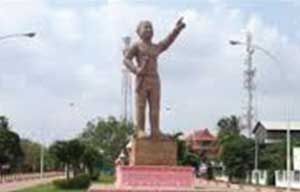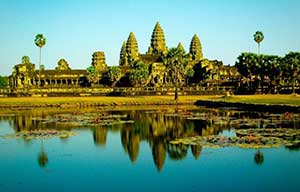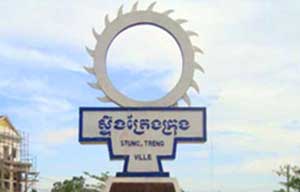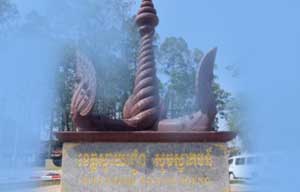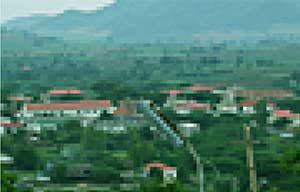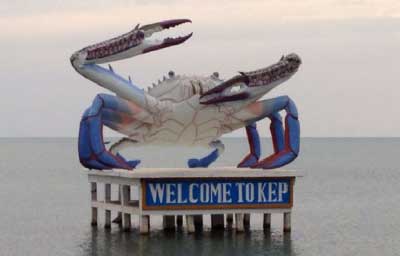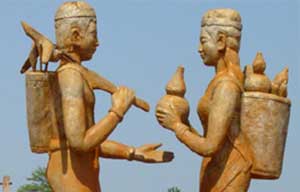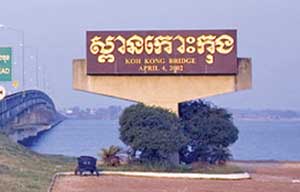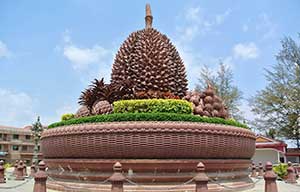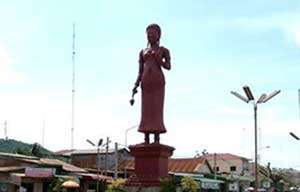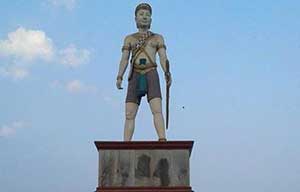The United Nations (UN) and the Embassy of Japan to Cambodia launched here yesterday the UN joint programme implemented by the International Organisation for Migration (IOM) together with United Nations Population Fund and United Nations Children’s Fund and funded by the Government of Japan.
Mr. KARIMATA, Minister of Embassy of Japan in Cambodia and Ms. Pauline Tamesis, UN Resident Coordinator in Cambodia, presided over the launching ceremony in Phnom Penh.
The programme is aimed at supporting the Royal Government of Cambodia in health compliant border response to limit the spread of COVID-19 variants of concern and meet the immediate needs of returning migrant workers from abroad, said a joint press release.
According to the source, the COVID-19 has created uncertainty and continuous emergency, with new variants such as Delta and Omicron. Currently, the infection prevention and control measures at the Points of Entry which witness large movements of people, such as at the Thai-Cambodian borders, remain vulnerable to high risks of transmission and spread of the COVID-19 variants of concern into rural communities and subsequently overwhelming the already fragile health system of Cambodia.
Therefore, the priority is to strengthen measures for smart containment and protection to prevent larger scale community transmission of variants of concern into Cambodia, as part of border reopening with Thailand expected to take place in 2022.
It is important to follow a health and human rights’ compliant approach to border management in order to effectively control and manage further transmission of COVID-19 to rural communities, while fulfilling migrants’ basic rights when they cross the border, stay in quarantine facilities or undergo treatment for COVID-19 in treatment centres.
Cambodian migrants returning from abroad, mainly Thailand, are considered one of the most vulnerable populations impacted by COVID-19 pandemic. Migrant workers in Thailand have limited access to testing and COVID-19 treatment, and many are unable to adhere to public health recommendations due to their living and working conditions, with home isolation being unavailable for those tested positive. Only a small portion of regular migrants in formal employment are eligible to access the social protection schemes offered by the Royal Thai Government and COVID-19 vaccination in Thailand.
During their migratory journey, the migrants and their families return to Cambodia through both official and unofficial Points of Entry. Migrants who cross the border irregularly with limited or no access to COVID-19 preventive measures, testing or quarantine arrangements can contribute to COVID-19 spread in their home communities.
Mr. KARIMATA, Minister of Embassy of Japan, commented that “Ensuring health compliant border response to limit the spread of COVID-19 variants of concern is imperative for protecting the lives of not only migrants but also people living in project areas.” He then confirmed that “The Government of Japan is committed to supporting the Royal Government of Cambodia in response to the COVID-19 crisis and restoration. We feel fully confident that our contribution through IOM will make significant and sustainable impacts, particularly on vulnerable populations, and accelerate the progress to achieve the Sustainable Development Goal 3 on ensuring healthy lives and promote well-being for all at all ages, Goal 10 on reducing inequality within and among countries and Goal 17 on strengthening the means of implementation and revitalize the global partnership for sustainable development.”
Ms. Kristin Parco, IOM Chief of Mission in Cambodia commented that “delivered by a UN system-wide response led by the International Organisation for Migration (IOM), World Health Organisation (WHO), United Nations Children’s Fund (UNICEF), and United Nations Population Fund (UNFPA) under the leadership of the UN Resident Coordinator, the joint emergency response funded by Government of Japan will address the priority needs of returning migrant workers by ensuring the flow of returning migrants at the border is managed using a humanely, dignified and health-compliant approach and return systems are in place for returning migrants that meet their health, well-being and protection needs.”
Ms. Pauline Tamesis, UN Resident Coordinator in Cambodia added: “The joint programme generously funded by the Government of Japan contributes to the broader effort of the United Nations country team to build back better with human rights at its core. By focusing on effective, dignified and health-compliant border management and quarantine arrangements for vulnerable migrants during their journey back to Cambodia, it promotes safe and humane return and more inclusive recovery from the COVID-19 pandemic.”
The joint programme will run for 12 months and provide assistance in Banteay Meanchey, Oddar Meanchey and Battambang provinces where the majority migrants cross the border.
